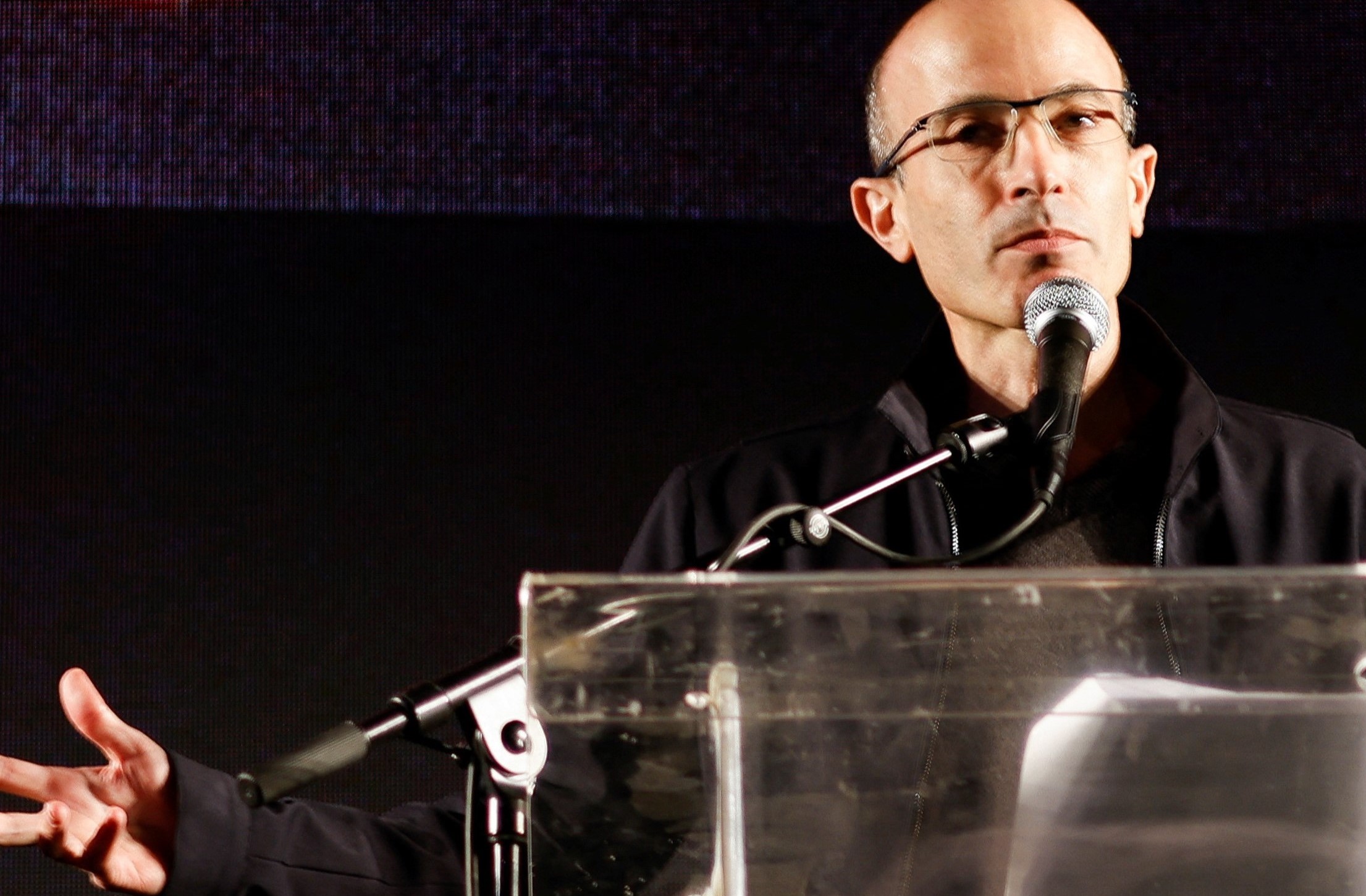Jewish voices
Israel deserves solidarity, Netanyahu not so much

Netanyahu has been controversial among Jews for a long time. In recent years, his governments only had rather slender parliamentary majorities, and recurring general elections did not change that.
The British journalist Jonathan Freedland belongs to those who find fault with Netanyahu. He argued in his Guardian column (17 November 2023) that leftists are wrong to believe Hamas is fighting for Palestinians, since “it does not mind if its own people die”. The author points out that this terrorist organisation used its funds not to provide basic services to people in Gaza, but to build a huge tunnel network for its own exclusive use.
He then goes on to state that western policymakers often misunderstand the character of the “most right-wing government” in Israel’s history: “It includes junior ministers who fantasise about flattening Gaza with a nuclear bomb or repopulating it with the Jewish settlements that were uprooted in 2005.”
Freedland’s conclusion is: “Washington, Brussels and London currently back Israel because they agree that no peace is possible without the removal of Hamas. They are much less clear that no peace is possible without the removal of Netanyahu and his henchmen.” Freeland is adamant that Netanyahu does not want the two-state solution western leaders keep insisting on.
Dwindling approval
Many Jews – whether in Israel or not – may disagree with Freedland to a greater or smaller extent. It is noteworthy, however, that Israelis are not rallying in Netanyahu’s support, though they are eager to eliminate Hamas. The prime minister’s support has dwindled to a mere 20 % in opinion polls.
The background is that Netanyahu is a typical right-wing populist whose propaganda defines the nation as a homogenous group which supports his world view. He reminds Washington Post columnist Jennifer Rubin of former US President Donald Trump (30 October 2023): „These are men who continually insist only they speak for the country, only they can shield it from harm. They dehumanise and demonise any opposition and cannot display a modicum of empathy. And when their own incompetence leads to avoidable deaths (e.g., a Hamas attack, a raging pandemic) they deflect and cast blame elsewhere.”
It fits the picture, Rubin argues, that Netanyahu pretended that only failures of the military and the secret service made the deadly pogrom on Israeli territory possible. His propensity to put his career first has been evident for a long time. Rubin quotes historian Ruth Ben-Ghiat, who told her: “Netanyahu displays the classic strongman attributes of self-preservation. He was laser-focused on ‘judicial reform’ to the detriment of national security.”
Mass protests to protect Supreme Court
Indeed, Netanyahu’s core ambition in the months before the monstrous Hamas violence was to eviscerate Israel’s Supreme Court, relying on the tiny parliamentary majority of his right-wing coalition. Earlier this year, Noah Yuval Harari wrote in the Guardian (7 March 2023): “If these laws are passed, the government will have the power to completely destroy our freedom. Sixty-one members of Knesset (Israel’s parliament, with 120 members, D+C/E+Z) could pass any racist, oppressive and anti-democratic law they think of.” Netanyahu did nothing to find compromise in spite of weekly mass protests, which included military reservists refusing to serve. It obviously matters that he wants to avoid prison but knows that an independent judiciary will most likely find him guilty of corruption once he leaves office.
On the other hand, Netanyahu has a long track-record of discrediting and silencing opponents. Sigal Samuel, a novelist and journalist, pointed out on vox.com (1 November 2023): “One strategy has been to brand absolutely any criticism of Israel antisemitic. Many Jews disagree with that characterization, noting that although anti-Jewish hate is all too real – we’re seeing it surging today – it doesn’t help Jews or anyone else to use it as a shield for everything Israel does to Palestinians.”
Michelle Goldberg made a similar point in her New York Times column (20 November 2023): “I’ve long argued that anti-Zionism and antisemitism aren’t the same thing.” The international explosion of anti-Jewish violence occasioned by the war in Gaza forced her to reckon with how often anti-Zionism and antisemitism are intertwined: “Abhorrence of the Jewish state slips easily into abhorrence of Jews.”
The depressing reality is that Jews, wherever they live and whether they have Israeli citizenship or not, are being held accountable for whatever the Israeli government does. The irony is that, though Netanyahu claims to speak for all Jews everywhere, he does not consistently denounce antisemitism. Guardian columnist Freedland argued this case in Britain’s Jewish Chronicle (28 September 2023).
He listed several instances of Netanyahu cosying up to Jew-haters abroad. For example, he mentioned right-wing parties “in Romania, Sweden, Finland and Germany” with a track record of holocaust denial and antisemitism. According to Freedland, the trade-off is quite simple for Netanyahu: “He’ll shake hands with these parties, so long as they issue a lip-service statement opposing antisemitism – even one that does not fully reckon with the truth of the Holocaust – thereby handing them the prize of Israeli-sanctioned public legitimacy. In return, as (the Israeli newspaper) Haaretz reported, ‘these parties support Israeli settlements in the West Bank’.”
Growing tensions
Israeli settlers have been causing increasing tensions in the West Bank for a long time. Among Palestinians, the fear of permanent displacement has spread. As Vox-author Samuel elaborated in another post (27 October 2023), this fear has three main drivers: “The first is ingrained in Palestinian memory: In 1948, hundreds of thousands of Palestinians were permanently expelled during the first Arab-Israeli war, and intermittent displacements have continued ever since, as Israel has sought to maintain a Jewish majority in the state by pushing Palestinians out.” The second driver of displacement fear was the increasingly expulsionist rhetoric of some Israeli leaders in recent months. The third is what the Israeli defence establishment has been saying since 7 October, demanding “to make Gaza smaller, if not permanently impossible for Palestinians to live in, let alone one day build a state in.”
US Senator Bernie Sanders assessed the situation similarly in the Guardian (2 November 2023): „This year saw record Israeli settlement growth in the West Bank, where more than 700,000 Israelis now live in areas the UN and US agree are occupied territories. Despite that, the Israeli government authorized thousands of new homes for settlers and opened up new areas to construction, while bulldozing thousands of Palestinian homes and schools and further restricting Palestinian movement.”
Sanders noted that legal experts speak of “illegal annexation” and warned that violence has kept escalating for months: “Before 7 October, 179 Palestinians had been killed in 2023, which made it the deadliest year in two decades. Since 7 October, 121 more Palestinians have been killed in the West Bank, including some by settlers. These tensions were part of why so much of the IDF (the Israel Defence Forces, D+C/E+Z) was deployed in the West Bank, rather than on the border with Gaza.” The reduced presence of troops on the southern border obviously helped Hamas to carry out its atrocious pogrom.
In the New York Times, the journalist Peter Beinart assessed West Bank Palestinians’ fate in a similar way (14 October 2023): “For more than half a century, they have lived without due process, free movement, citizenship or the ability to vote for the government that controls their lives. Defenceless against an Israeli government that includes ministers openly committed to ethnic cleansing, many are being driven from their homes in what Palestinians compare to the mass expulsions of 1948.”
Apartheid accusations
For these and related reasons, the international non-governmental organisations Human Rights Watch and Amnesty International accuse Israel of apartheid. The legal term means that different laws apply to different people on the same land with the purpose of systematic oppression and domination. The Israeli civil-society organisation B’Tselem uses it too. A document it released in October 2022 pointed out: “Roughly 15 million people, about half of them Jews and the other half Palestinians, live between the Jordan River and the Mediterranean Sea, under a single rule.” B’Tselem states that the perception of a democratic state being separate from only temporarily occupied territories is wrong. “All of us, Jews and Palestinians alike, live in this area in a binational reality, under a single regime. About half of the population – all the Palestinians who live in this area, whether they are citizens, permanent residents or subjects – are either fully or partially excluded from this decision-making process.”
The full truth is that Netanyahu has been pitting Hamas against the Palestinian Authority for a long time, doing what he could to boost the former and weaken the latter. Jewish Currents, a periodical based in New York state, reported the following (10 October 2023): “In March 2019, Netanyahu told a meeting of his Likud party’s Knesset members that ‘anyone who wants to thwart the establishment of a Palestinian state has to support bolstering Hamas and transferring money to Hamas. This is part of our strategy – to isolate the Palestinians in Gaza from the Palestinians in the West Bank’.”
Ezra Klein is another New York Times columnist. He has been using his podcast to assess the current crisis from various angles. He is furious about the vicious terrorism of Hamas and how some people not only celebrate it, but openly accuse all Jews of complicity with Netanyahu, whom he himself deeply resents. In the episode of 17 November 2023, Klein pointed out that different generations of Americans see Israel in a different light.
To people of Biden’s age, it is still a weak and vulnerable country that was founded by people who escaped the holocaust. His own generation’s experience is different, Klein stated: “We only ever knew a strong Israel, an Israel that was undoubtedly the strongest country in the region, a nuclear Israel, an Israel backed by America’s unwavering military and political support.” What alienated many young Americans, including Jewish ones, was that Israel kept moving further right, according to Klein: “Extremists once on the margin of Israeli politics and society became cabinet ministers and coalition members. The settlers in the West Bank ran wild, functionally annexing more and more territory, sometimes violently, territory that was meant to be returned to Palestinians.”
Angry about growing anti-Jewish sentiments and violence internationally, Klein nonetheless argued that rallies in support of Palestine are not simply expressions of antisemitism. In his eyes, many participants are plainly appalled by the large number of Palestinian civilian deaths in Gaza.
Little concern for peace
To summarise the sources quoted so far, Netanyahu’s policies are polarising at the national level and aggressively expansive towards the occupied territories. He has shown little concern for the rule of law, pluralism and peace with Palestinians. This is why UN Secretary-General António Guterres (the only non-Jew to be quoted in this essay) said that the Hamas attacks did not happen “in a vacuum”. In response, Israel’s government demanded his resignation.
In this complicated setting, Jewish Netanyahu-critics have messages western governments should heed. David Levy, a former Israeli diplomat, called for a ceasefire in the New York Times (8 November 2023): “It has been said many times that what Israel needs from its friends and supporters is to be pulled back from the precipice. America’s guaranteeing of Israeli impunity and unwillingness to meaningfully address Palestinian suffering has for too long failed Israelis and Palestinians alike.”
Senator Sanders wants a ceasefire too. He wrote in his Guardian piece: “Like any other country, Israel has the right to defend itself and destroy the Hamas terrorists who attacked them. But it does not have the right to kill thousands of innocent men, women and children in Gaza. It does not have the right to endanger the lives of millions of Palestinians – half of whom are children – by shutting off water, food, fuel and electricity.”
Thomas Friedman warned in his New-York-Times column that Netanyahu’s credibility rests on a rather shaky foundation (25 October 2023): “If Israel is asking its best allies to help the Jewish state seek justice in Gaza while asking them to look the other way as Israel builds a settlement kingdom in the West Bank with the express goal of annexation, that is strategically and morally incoherent.”
In a later column (14 November 2023), Friedman demanded that the White House change its course. It should not only verbally endorse the two-state solution that Netanyahu always did his best to prevent, he argued, but actually propose a plan for achieving it: “It is time for President Biden to create a moment of truth for everyone – for Netanyahu, for the Palestinians and their supporters, for Israel and its supporters and for AIPAC.” AIPAC is the American Israel Public Affairs Committee, a lobby organisation. Friedman insisted that Biden “needs to make clear that America will not be Netanyahu’s useful idiot”.
Hans Dembowski is editor-in-chief of D+C/E+Z. The dates indicated in the essay are when the articles quoted appeared on the respective websites.
euz.editor@dandc.eu

















